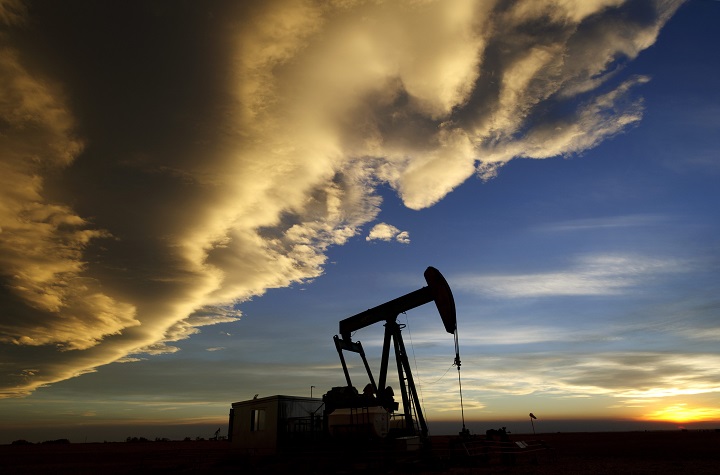It’s hard enough predicting the weather in this province, let alone trying to figure out what the financial future may hold for us over the next 12 months.

But if anyone has a good guess, it’s Todd Hirsch. He’s the Calgary-based chief economist of ATB Financial and author of “The Boiling Frog Dilemma: Saving Canada from Economic Decline.”
“It’s always difficult to forecast what’s going to happen next, but going into 2016 it’s especially difficult simply because there are so many wild variables all around the global economy,” said Hirsch.
One such variable is China, the world’s largest consumer of commodities. It recorded its worst economic performance since the global financial crisis in the third quarter of 2015.
“China is the most important country for Canada and for Alberta to be watching in 2016,” said Hirsch. “China’s economy definitely has moderated; it has slowed down. That’s part of the reason why oil prices are weak going into 2016. If we see further slow down or maybe some sort of recession in China that could push oil prices even lower, however, that is not my expectation.”
Instead, Hirsch expects China will eke by and keep oil prices somewhat steady for Canada into 2016.
- B.C. to ban drug use in all public places in major overhaul of decriminalization
- Posters promoting ‘Steal From Loblaws Day’ are circulating. How did we get here?
- Canadian food banks are on the brink: ‘This is not a sustainable situation’
- 3 women diagnosed with HIV after ‘vampire facials’ at unlicensed U.S. spa
“We have to understand that anything is possible when we talk about oil prices. It could be at $20, it could be at $100 dollars. Anything is possible, but we have to look at different scenarios and which is the most likely case scenario,” said Hirsch. “In that respect, I think that oil prices back at around $55 or $60 a year from now is the most likely case.”
But that rebound likely won’t happen all at once. Hirsch suggests we could see oil prices hover around $35 to $40 a barrel for the first half of 2016.
READ MORE: Alberta delays release of results of oil royalty review until January
Unemployment, meanwhile, is already at seven per cent in Alberta going into the New Year. Hirsch expects that will climb, perhaps to eight per cent in 2016.
Average weekly wages in our province could come down to be closer in line with the national average.
“Wages pressures I think will be coming down and that’s already started to happen in 2015,” said Hirsch. “We saw average weekly earnings in Alberta falling and for a lot of people who have maybe lost their job – finding a new job, but maybe a job that doesn’t pay quite as much, will be part of that downward wage readjustment this year.”
READ MORE: Alberta Premier Rachel Notley ready to put plans into action in 2016
There’s no collapse in housing prices in Hirsch’s forecast – but he expects there could be another five to 10 per cent drop.
“The housing market went into this recession in pretty balanced, healthy shape. So I’m not expecting a collapse in housing prices.”
For many Albertans, 2015 has been a year for finding financial efficiencies.
“I think, like many people in Calgary and Alberta, we’re going to be holding on a little tighter, certainly not spending much in U.S. dollars at all until Canada’s economy bounces back,” said Calgarian Bill Peters.



Comments